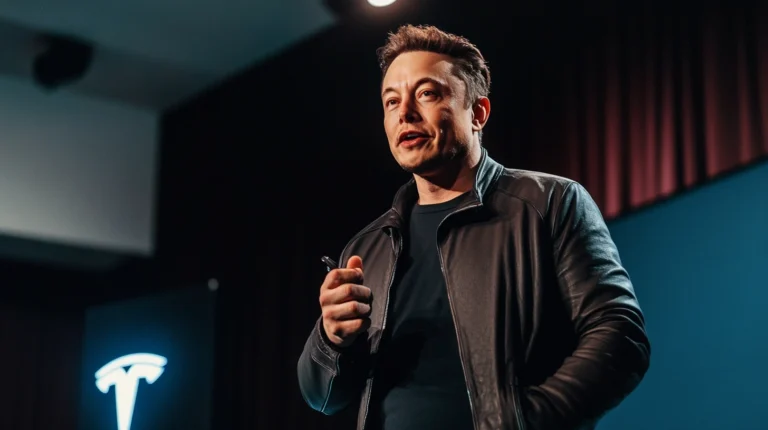Tesla stock saw a modest uptick on Thursday morning after the electric vehicle giant publicly denied a report that it was actively searching for a replacement for CEO Elon Musk. The Wall Street Journal had published a story suggesting that the board was exploring leadership alternatives earlier this year, but Tesla swiftly pushed back against the claim.
Robyn Denholm, Tesla’s chairwoman, issued a statement on the company’s official X (formerly Twitter) account, clarifying that Musk remains firmly at the helm. “Elon Musk is the CEO of Tesla, and the Board is fully confident in his leadership and his ability to carry out the company’s ambitious growth strategy,” Denholm wrote, calling the WSJ’s article inaccurate.
Following Tesla’s rebuttal, shares climbed by 1.6% in early trading Thursday. This gain helped offset the 3.6% dip that occurred in after-hours trading the night before, when the WSJ story initially made waves among investors.
However, the Wall Street Journal isn’t backing down. A spokesperson for the publication said, “We stand by our reporting. Tesla was contacted prior to publication and declined to comment.”
Analyst Joseph Spak of UBS weighed in on the situation, highlighting Tesla’s heavy reliance on Musk’s persona. “There’s no other company with as much ‘key man risk’ as Tesla,” he remarked. While Spak acknowledged that Musk might remain in his role for the foreseeable future, he emphasized that investors would benefit from more transparency around long-term succession planning.
Tesla is currently navigating a critical period. Its core electric vehicle business is under pressure from increased competition, slowing demand, and geopolitical tensions that are rattling the global auto market. Much of Tesla’s market appeal now lies in its ambitions in artificial intelligence, a sector where Musk’s influence remains unmatched.
“Finding someone who can inspire the same confidence and excitement as Musk isn’t going to be easy,” Spak added.
The Wall Street Journal had reported that Tesla’s board reached out to executive recruitment firms to start a formal search for a new CEO. According to the report, this move was sparked by concerns over Musk’s divided attention, especially with his growing involvement in political matters and other ventures outside Tesla.
Reportedly, the board had confronted Musk, asking him to commit more time to Tesla and make that commitment known publicly. Musk appeared to respond positively, stating during Tesla’s recent first-quarter earnings call that he would begin dedicating significantly more time to the company starting in May.
Still, he made it clear that his involvement in government matters would continue. Just this week, Musk received praise from former President Donald Trump for his role in advocating cost-cutting measures through the Department of Government Efficiency.
Tesla is grappling with a challenging 2025, marked by declining sales amid intensifying competition and a drop in consumer interest in electric vehicles. Adding to the pressure is a political backlash in both the U.S. and Europe, where Musk’s outspoken views and affiliations have sparked calls for boycotts.
On the international front, Musk also flagged concerns about the escalating trade dispute between the U.S. and China. While tariffs have posed a major threat to Tesla’s bottom line, recent moves by Trump to ease some automotive levies may help cushion the impact.

